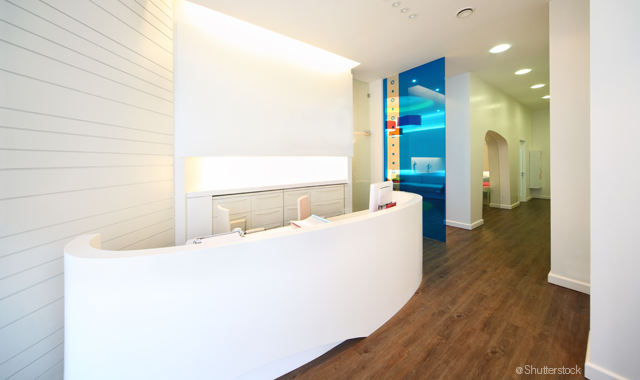Be a real estate winner
How to navigate the world of real estate and avoid paying thousands of dollars you don't have to.

Let’s start with some basics:
- Unless you own a mobile clinic, you will need an office space to see patients
- A practice’s office lease or mortgage is typically it's second-highest expense
- In today’s economy, maximizing profitability is essential for most practices to stay in business
Now let’s dig in further. If you own a practice, you most likely have an office. That office carries with it many expenses-the most obvious is the monthly rent or mortgage. With an office space also comes staff and payroll as well. These two items are not only needed to have a practice, but are also the two highest expenses for most practices. However, only one of them is really negotiable. You may decide to cut staff, but when it comes to payroll, you either pay people what they are valued at, or they go somewhere that will pay them.
Related reading: Debt advice for young dentists
Control what you can: Real estate
Real estate is, however, 100 percent negotiable. You can decide if you want to be in an office building, retail center or medical office building. You can decide if you lease or own. You can determine the size, location and amenities your space will offer. You can choose to be in a stand-alone or multi-tenant building. You can determine the length of lease, concessions you ask for, economic terms, business terms, etc.
So if real estate is your second highest expense behind payroll-and if there are so many options and choices to make when it comes to your office space-how can you minimize your expenses?
Related article: The biggest mistakes dentists make: Living above your means

To start, you need to understand how the game is played. As a healthcare professional, the playing field is not level. You are a healthcare professional who might engage in two to six commercial transactions in your career. Most landlords and sellers negotiate professionally for a living. You specialize in your field; they specialize in their field. If the outcome was based upon understanding medicine or providing a health-related service, you would probably win.
However, the commercial transaction process and outcome are based upon comprehensive real estate market knowledge, authoritative posturing and negotiation expertise. Winning requires having more options, understanding the correct timing, posture and negotiation tactics that landlords use, and, in many cases, being able to withstand the stress and conflict that many landlords and sellers use to exploit unsophisticated tenants and buyers.
Let’s focus on a few of these concepts. If you start the transaction at the wrong time, you lose leverage and posture. If you don’t know the market, you are simply begging or bluffing. If you can’t handle conflict, you will most likely receive even more pressure and stress from the landlord or seller. This may make you uncomfortable and force you into making a decision that you will regret.
Even if you could overcome all of these, without professional representation you are going to be viewed as a novice, and are therefore not going to receive the respect that is necessary to achieve the most favorable terms available.
Related reading: 10 ways to help your dental practice compete now and in the future
Up next: What to do when everything is against you winning
The keys to negotiating success
Nearly all landlords and sellers hire or consult with professional commercial real estate brokers to give them leverage. Why? Because they understand what is really on the table when it comes to each negotiation. For them, if they give up unnecessary concessions or go lower on rates than they need to, it costs them tens to hundreds of thousands of dollars of profit per lease. The reality is, those are the same items you are trying to maximize and capitalize on.
Large national tenants and buyers understand this concept as well. If you polled the Fortune 500 companies, you would find they either hire professional representation on every transaction, or they have a team of in-house professionals who are trained and equipped to maximize the opportunity. They understand the potential upside or downside involved in every transaction, and they are committed to getting the best possible terms in every transaction.
Read more: The biggest mistakes dentists make: Not relying on experts for guidance
Most doctors and administrators don’t understand that commissions in commercial real estate are typically paid the same as they are in residential real estate: by the seller or landlord. This means representation does not cost the practice more money. Fees are set aside in advance and are used to provide each party with representation, or the landlord or seller keeps that money or gives their broker a double commission.
If you are looking to maximize profitability, start by understanding how much is on the line with your lease or mortgage. Then, make the choice to hire representation that is 100 percent free to you. Select a commercial real estate broker who understands healthcare, only works for you as the tenant or buyer, can help you find the most options, has the strongest game plan and can take and absorb the conflict and confrontation that is inherent in every negotiation that involves a lot of money. This will put you in a position to win.
Watch: Jayme Amos shares some tips on what dentists need to know when opening a new practice
The bottom line is this: there are tens to hundreds of thousands of dollars available to either be won or lost in every commercial real estate transaction; especially with healthcare real estate. Your profitability affects your patients, your staff, your family and many others. Maximize every commercial real estate opportunity by taking advantage of the best resources available to you. Winning on your next commercial real estate transaction can transform your practice!